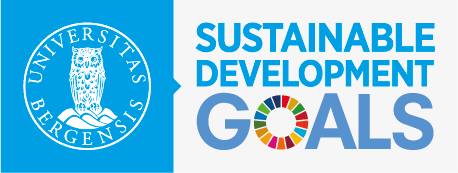Science Diplomacy in the age of the SDGs
SDG Bergen Science Advice inviterer SDG-orienterte forskere til en egen workshop for å diskutere hvordan 2030-agendaen påvirker vitenskapelig rådgivning og vitenskapsdiplomati.
Hovedinnhold
- Vi planlegger flere arrangement om vitenskapelig rådgivning i tiden fremover. Meld deg på vårt nyhetsbrev og/eller følg oss på Twitter hvis du vil vite om disse på forhånd.
On behalf of the University of Bergen, SDG Bergen Science Advice (SDG BSA) has arranged official side events at COP24 in Katowice, the 2019 High-level Political Forum (HLPF) in New York and Our Ocean 2019 in Oslo, in partnership with diplomats and scientists from our global network. The June 2019 Bergen Summer Research School was devoted to the science-policy nexus, with Dr. Edvard Hviding of SDG BSA as scientific director.
For this event on Day Zero at the 2020 SDG Conference Bergen, SDG BSA wants to highlight its activities on the science-policy nexus with a special presentation of science diplomacy. How can scientists who want their research to have societal impact reach decision-makers in large bureaucratic organizations such as the UN or EU? What mechanisms are available for scientists to engage with decision-makers on national and international level?
The target group for this workshop is SDG-oriented researchers, in particular PhDs, postdoctoral fellows and researchers early in their career, who want to learn more on how to contribute to the science-policy nexus.
Science diplomacy is a term used for scientific cooperation to build international partnerships. As well as collaborations between scientific institutions such partnerships may encompass international organisations, nation states, diplomacy, government agencies, voluntary organisations/civil society, and business/industry. Universities and university networks can engage in science diplomacy and create innovative channels for scientific advice.
The workshop will focus on partnerships and how universities can work together through university networks and joint projects to impact on policies in general and the 2030 Agenda and the SDGs in particular. Researchers will present projects from around Europe and their experiences in the science-policy nexus and activities as science diplomats.
Programme:
- 12:00-12.30 – Light lunch and mingling
- 12:30-12:35 – Welcome and opening, Pro-Rector Dr. Margareth Hagen, University of Bergen
- 12:35-12:50 – Presentation of SDG Bergen Science Advice (SDG BSA), Dr. Edvard Hviding, professor of anthropology and scientific director of SDG BSA
- 12:50-13:00 – Presentation of the SDG Bergen Policy Brief, Mr. Sverre Ole Drønen, SDG Bergen's communications adviser
- 13:00-13:30 – How to create a shared Science Diplomacy for Europe, Dr. Rasmus Gjedssø Bertelsen, UiT – The Arctic University of Norway and Coordinator for the EU Science Diplomacy Cluster InsSciDE: Inventing a shared Science Diplomacy for Europe, Consortium #5, Work Package 2
- 13:30-13:50 – Q&A
- 13:50-14:20 – From cancer genetics to science diplomacy to Horizon 2020, Dr. Lorenzo Melchor, EU science advice and diplomacy officer at the Spanish Foundation for Science and Technology (FECYT), Madrid (Spain), and representing S4D4C: Using Science in/for Diplomacy for Addressing Global Challenges
- 14:20-14:40 – Q&A
- 14:40-15:20 – Coffee break and mingling
- 15:20-15:50 – Making Sense of Science for Policy under conditions of complexity and uncertainty, Dr. Jeroen van der Sluijs, professor in the Theory of Science and Ethics of the Natural Sciences. Including a presentation of the MASOS report and the Scientific Advice to European Policy in a Complex World report, followed by Q&A.
- 15:50-16:15 – Examples of science-policy impact in migration research, Dr. Hakan G. Sicakkan, professor of comparative politics, Principal Investigator PROTECT, and member of the Global Academic Network for the UN Global Compact on Refugees. Including Q&A.
- 16:15-16:20 – Closing remarks by SDG BSA's Scientific Director Edvard Hviding
- 16:20-17:00 – Mingling

